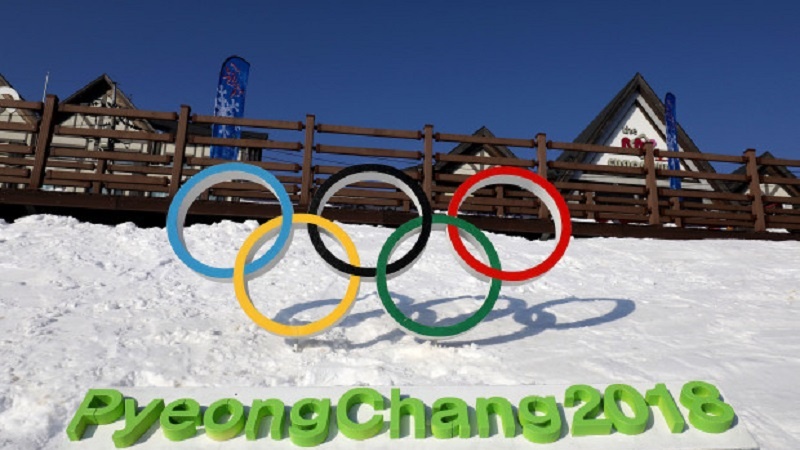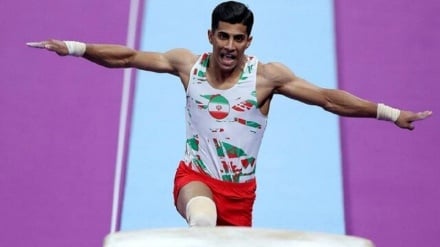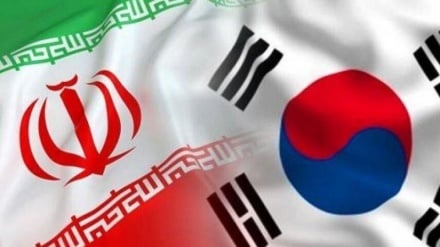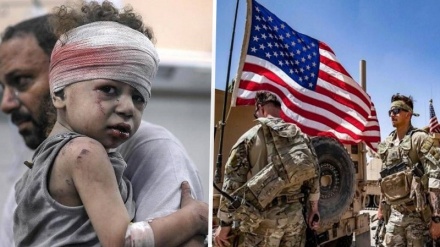2018 Winter Olympics held in Korea under shadow of war
In an extraordinary show of unexpected unity, North and South Korea sat side-by-side Friday night under exploding fireworks that represented peace, not destruction, as the 2018 Winter Olympics opened on the Korean Peninsula. The genuine show of Korean unity rejected America’s warmongering, hypocrisy, anger, suspicion, and bloodshed, and instead opted for regional peace and stability.
The sister of North Korea's leader, Kim Jong Un, shook hands with South Korean President Moon Jae-in - both appearing genuinely pleased - while they watched an elaborate show of light, sound and human performance. A moment stunning in its optics and its implications came minutes later: The United States, represented by Vice President Mike Pence, sat suspiciously a row ahead of Kim's sister and the North's nominal head of state, all watching the Games begin - officials from two nations that many worry are on the brink of nuclear conflict. Not long after, North and South Korean athletes entered Olympic Stadium together, waving flags showing a unified Korea - the longtime dream of many Koreans, both North and South. It was the rivals' first joint Olympic march since 2007. International Olympic Committee President Thomas Bach lauded the joint march of the two Koreas and said, "We thank you. We are all touched by this wonderful gesture. We all join and support you in your message of peace."
As is, the striking visual moments haven’t gone so well in Washington, where ‘I Have Bigger Button’ President Donald Trump still insists South Korea and Japan should talk about war to pay more for American protection against their neighbor. Begging for war, Trump even sent his Vice President Pence to the Winter Olympics to deliberately fire-hose spray the new political development and ensure the Korean unity spectacle and reconciliation won’t go farther than Pyeongchang. The only problem is that North Korea has a habit of not letting itself be ignored when it comes to its Southern neighbor. And so, with a little help from the South Korean president eager to engage Pyongyang, it joined the 2018 Pyeongchang Games. And it did so with as much focus on further talks and political reconciliation with the South.
To that end, Pyeongchang is the initial pitch. It could and should certainly contribute to peace on the Korean Peninsula. The opening ceremonies offered at least some hints about that, and maybe more. What's certain is that these Games, more so than any in recent memory, are about far more than sports. They are also about peace, as war is never something the Korean people and their neighbors want.
The people of two Koreas are all in the know that President Trump pursues stronger sanctions and has threatened to punish countries that trade with North Korea. In the absence of another 'fire and fury' tweet, he has ordered his administration to consider banning North Korean textile exports and its national airline, stop supplies of oil to the government and military, prevent North Koreans from working abroad, and add top officials to a blacklist to subject them to an asset freeze and travel ban. Trump has even asked to be briefed on all available military options as Washington is dedicated to no peaceful resolution to the Korean crisis. Far from it, the US wants war to oil the engine of its Military-Industrial Complex, create jobs for its weapons makers, expand its strategic influence in the Far East through reckless and dangerous nuclear intentions, and allegedly “make America great again”. No wonder this outrageous misconduct is also vehemently opposed by neighboring China and Russia.
In this dangerous environment that could easily have catastrophic consequences for everyone on the planet, however, the dazzling display of Korean unity on opening ceremonies at the Winter Olympics was the wonderful gesture the international civil society would expect from the North and South Korean leaders. More pertinently, it was an excellent exercise in regional diplomacy as well. The 2018 Winter Olympic Games opened in South Korea under the official theme of “peace.” Thomas Bach, the president of the International Olympic Committee, declared that it would send a “powerful message of peace to the world.”
The Trump administration has made clear that it will allow no let-up in its insistence that Pyongyang unconditionally submit to US demands for an end to its nuclear weapons program or face military action. The decision for the North and South to compete on the same Olympic team—though welcomed by millions throughout the region in the hope that it might signal a lessening of tensions—was met with unconcealed hostility by the Trump administration.
This was epitomized by Vice President Mike Pence’s arrogant display at the opening ceremony, where he remained seated and stony-faced as the joint Korean team entered the stadium to a standing ovation. The American vice president left no doubt that Washington regards South Korea, occupied by some 35,000 US troops, as a semi-colony that should know its place.
Pence’s attendance at the Olympics was converted into a tour preparing for war, including a visit to US ballistic missile systems in Alaska and meetings with the leaders of US allies Japan and South Korea. Speaking in Tokyo, Pence declared, “We will not allow North Korea to hide behind the Olympic banner the reality that they enslave their people and threaten the wider region.”
This was from the representative of a government that between 1950 and 1953 carried out a war that killed at least three million Koreans, and is now carrying out a massive military buildup in the region, including the stationing of nuclear-capable B-2 bombers in Guam, in preparation for war.
Contrary to its supposed “international ideal,” the Olympics has always been an arena for the virulent promotion of nationalism and geopolitical interests by the world’s major powers, from Hitler’s efforts to use the games as a demonstration of Aryan supremacy to the determination of the US to demonstrate its supremacy over the Soviet Union throughout the Cold War.
This Olympics, like those that have preceded it, has been dominated by the most extreme expressions of nationalism and chauvinism, particularly by the United States, summed up in the belligerent chant of “USA, USA!” One would think that a country with the size, wealth and military might of the United States would have no need to engage in such endless self-promotion, which assumes a jingoistic, hyper-militaristic character. It can be explained only by the crisis eating away at the growing challenges to Washington’s strivings for global hegemony.
In addition to the US military buildup against North Korea, the 2018 Olympics have been dominated by a ban on Russia by the IOC Executive Committee last December, under pressure from the United States. The allegations of systematic Russian doping are largely based on the testimony of Grigory Rodchenkov, who ran Russia’s anti-doping laboratory before moving into the protective custody of the American government in 2016.
While 168 Russian athletes have competed in the games, they are subject to additional intrusive drug testing, while all Russian flags have been banned and the Olympic theme has been played in place of the Russian anthem at medal ceremonies where Russians have won. The IOC announced this month that the Russian athletes and coaches who had their lifetime bans on charges of doping overturned would still not be invited to participate. In 2016, Russian athletes in the Paralympics Games and track and field teams were banned from participating in the Rio Olympics. These measures are blatantly aimed at presenting Russia as an international pariah state. The hypocrisy of the supposed outrage over alleged Russian doping is made clear by the revelations of systematic sexual abuse of adolescent female gymnasts by the USA gymnastics head doctor Larry Nassar. The American media has been dominated for months by reports of this abuse, which was systematically covered up by US Olympic Committee officials who knew of the scandal for over a year before it came to light, yet did nothing.
The same Western governments and corporate media that marched in lockstep in support of banning Russia have made no suggestions that the “Stars and Stripes” should be barred from the South Korean Olympics and the singing of the US national anthem forbidden, even though the abuse of American athletes goes far beyond any violations committed in the alleged doping of their Russian counterparts.
This disparity only underscores the fact that the penalization of Russian athletes is not a defense of the supposed integrity of Olympic sport but rather part of a ferocious campaign of demonization of Russia to prepare the population for war. Notwithstanding the official paeans to “peace” at the current Olympics, the world’s major powers are responding with their own military buildup to the announcement in the latest US National Defense Strategy document that the United States is preparing for a so-called “great power” conflict with its called “revisionist states,” principally Russia and China.
That was an analysis on the US belligerent “great power game” policy contemplating on the Winter Olympics in South Korea. That was partly from an article by Will Morrow who is a senior vice president of finance and treasurer for Nashville, Tennessee-based HCA, the nation's leading provider of healthcare services.
EA/ME



